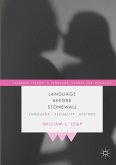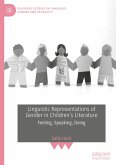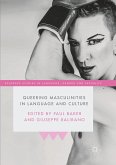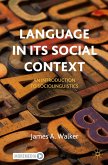This book explores the linguistic and social practices related to same-sex desires and identities that were widely attested in the USA during the years preceding the police raid on the Stonewall Inn in 1969. The author demonstrates that this language was not a unified or standardized code, but rather an aggregate of linguistic practices influenced by gender, racial, and class differences, urban/rural locations, age, erotic desires and pursuits, and similar social descriptors. Contrary to preconceptions, moreover, it circulated widely in both public and in private domains. This intriguing book will appeal to students and academics interested in the intersections of language, sexuality and history and queer historical linguistics.
"In Language Before Stonewall, Leap uses novel methods to elucidate a varied but thematically and affectively coherent archive. This archive reconstructs queer US history before Stonewall as a temporal location ... that afforded agency to queers as expressive subjects. In doing this, Leap both gives his reader a productive method they may employ in their own queer linguistic studies if they so choose and, in a sense, prepares the US before Stonewall as a fertile site for queer linguistic scholarship." (Jack Maginn, Journal of Language and Sexuality, Vol. 11 (2), 2022)








